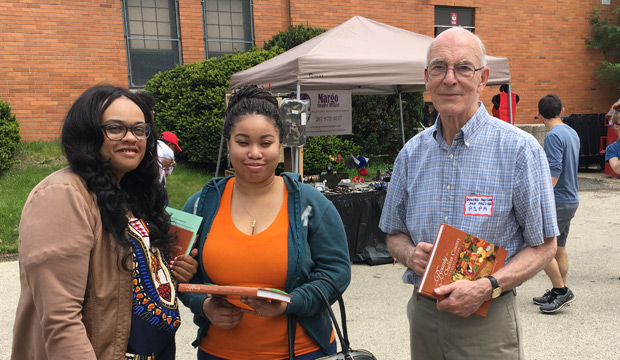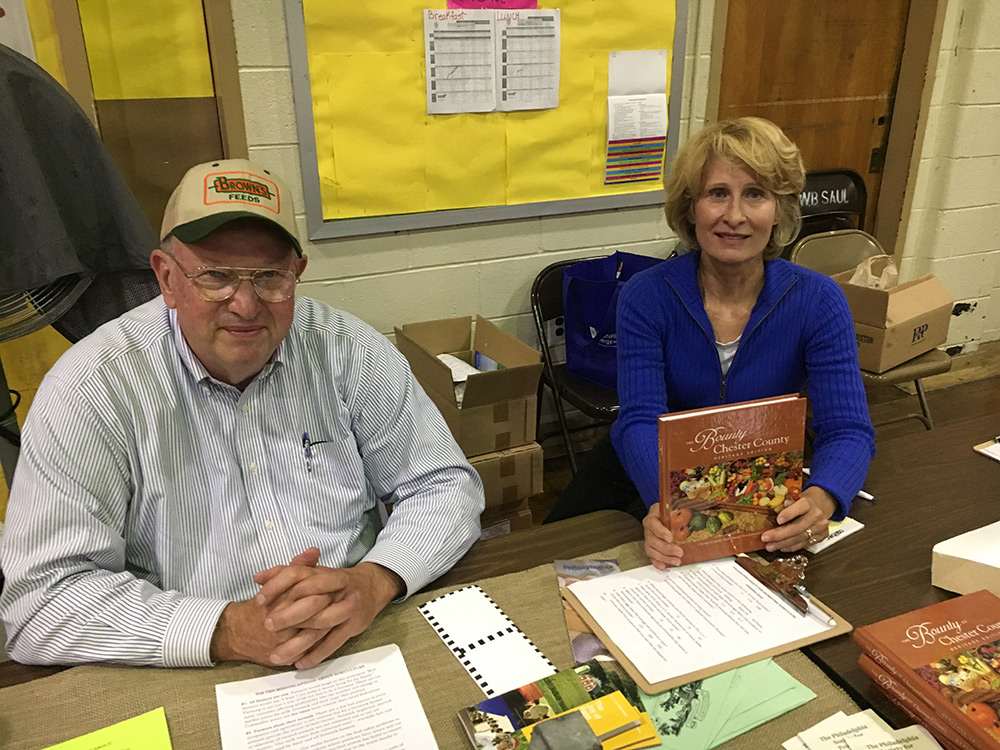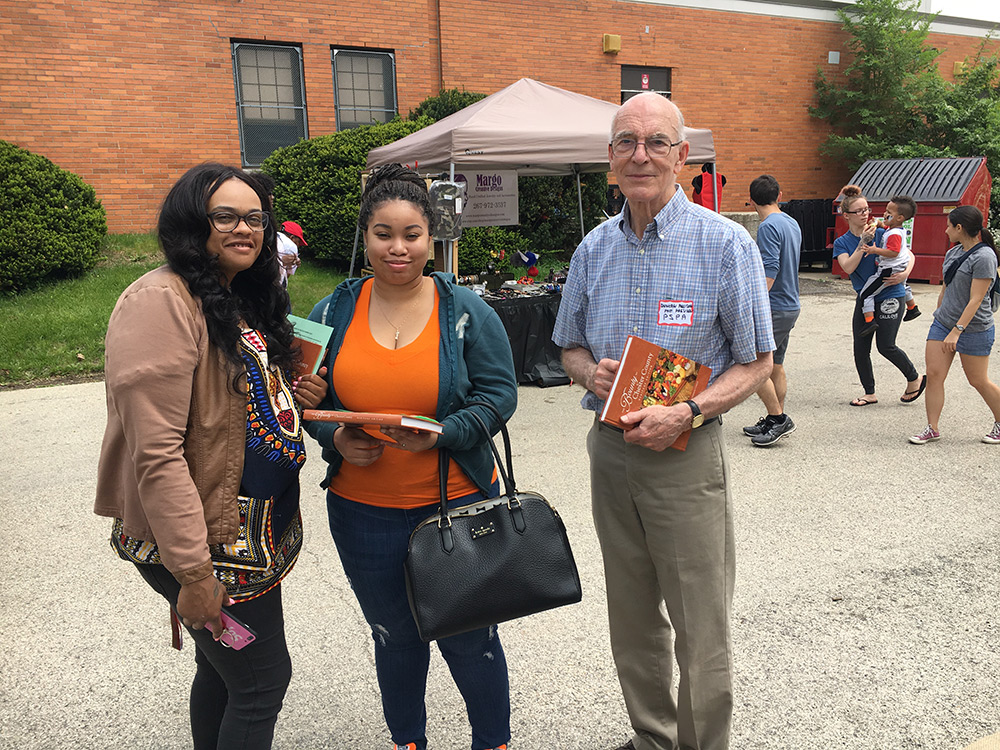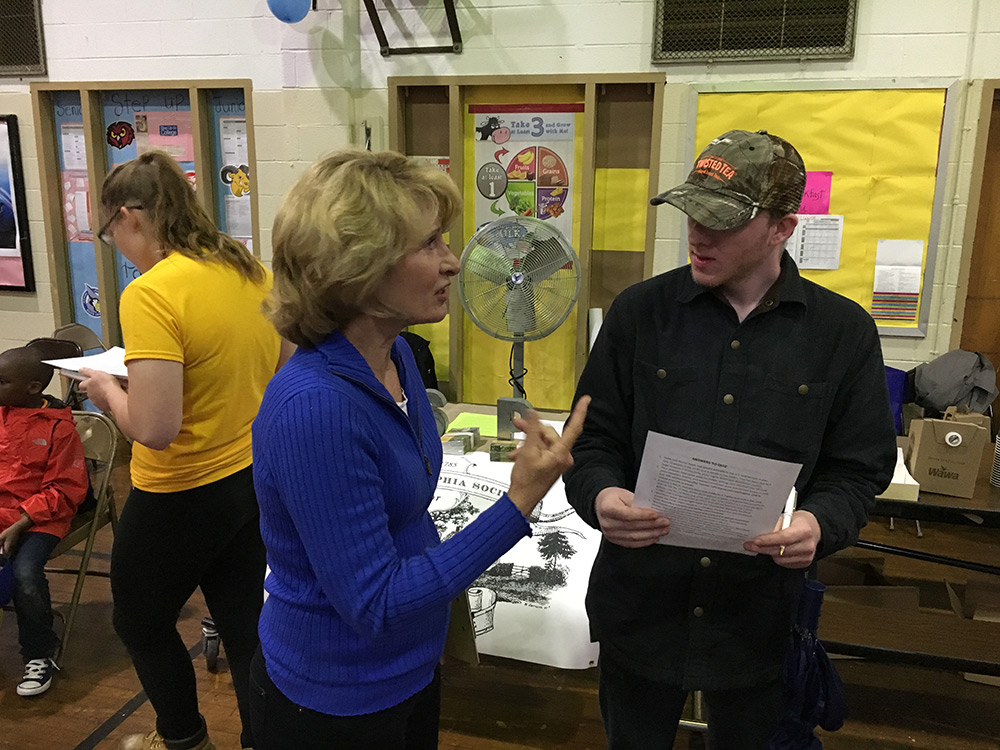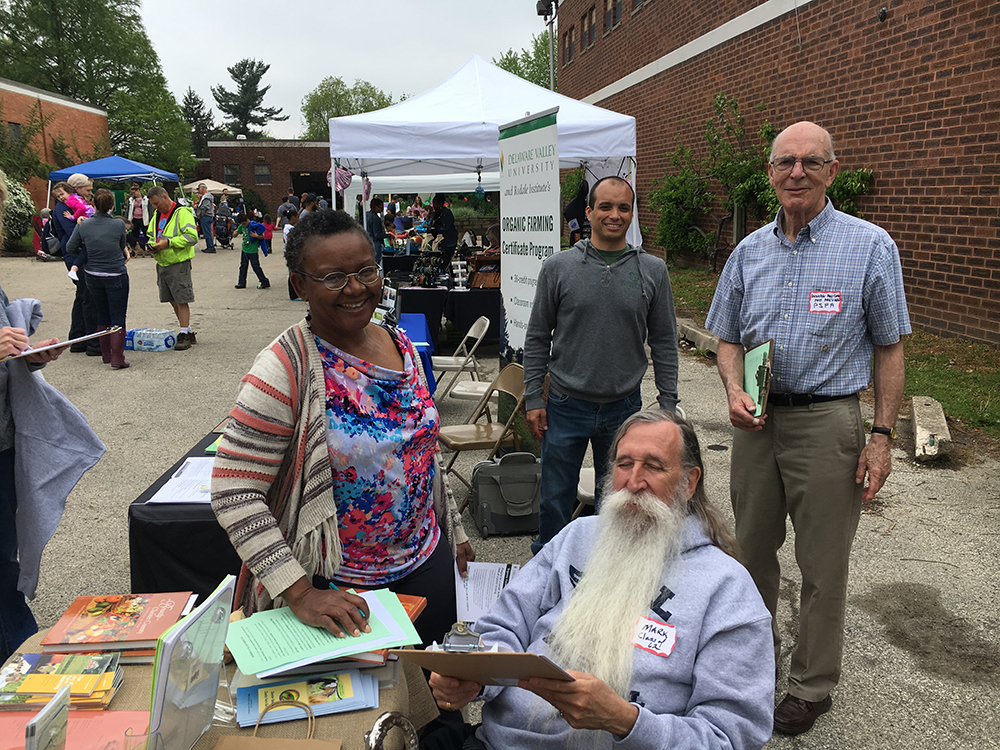A flourishing High School of Agricultural Sciences in Philadelphia? Absolutely and the 65th Country Fair was held at the school – W.B. Saul High School – on Saturday 12th May so that parents and the local community could witness some of the work of the students, visit the farm and enjoy the vendor stalls and entertainment.
The Philadelphia Society for Promoting Agriculture has several distinguished members who were students and our past Secretary, Ralph Bartholomew was Principal for many years.
Our society has been promoting agriculture since our founding in 1785 and the Fair provided an opportunity to offer an award-winning cookbook to families willing to take a quiz. 50 quizzes were completed.
“How to describe a farm” required some thought and discussion within the family. Most people understood it to mean producing food either from crops and raising livestock and a few added fiber and bees. No one included fish, flowers, lumber and horses to provide horsepower (Amish farmers) and the wide range of equine activities.
54% correctly circled 165 as the number of people one farmer now feeds in the U.S. and abroad each year as about 25% of U.S. farm products by value are exported. Virtually everyone knew that cotton and citrus were not grown in Pennsylvania but they were surprised that wheat, soybeans, tobacco and potatoes were also widely produced. Perhaps hay was difficult to identify – just a green field – but it is an important regional crop for horse feed and as a basic component of mushroom compost.
What else is needed to grow plants other than water and air? Just over 50% recognized sunlight as the source of energy and the need for soil/dirt but few specifically listed nutrients, particularly nitrogen, phosphorus and potassium. 59% correctly indicated that the average Holstein cow produces 9 gallons (75lbs) of milk each day. Slightly fewer chose 300 eggs per year as the typical number of eggs laid by a hen – 51% versus 39% for 270 and 10% for 225. Some did not smile when they were told that hens took Sundays off!
Virtually everyone – 97% – was aware that horses provide recreational use, allow participation in competitive events and are used for farm work. When asked – do you buy organic food at the store or market? There was a wide range of responses – 10 said straight “no” with one stating “I have faith in our food system” and others pointing to price as the deterrent, 8 wrote sometimes – “on occasions”, “not really”, “if it looks better” and “not usually – price”.
Reasons for choosing organic included healthier, better for the environment, less chemicals/pesticide use, healthier for you, better quality – produce and meat, better taste, “feel it is better for me” and “help with bees.” All quiz takers were given a sheet showing the correct answer according to best current information. It was pointed out that organic food sales are indeed growing significantly and reached $43 billion in 2016 representing about 5.3% of total food sales.
Quiz takers were given a range of the percentage (8% – 13%) of our income which is spent on food. 68% circled 13%, 26% decided 11% and the remaining 6% chose 8%. The U.S. Dept. of Labor, Bureau of Labor statistics (2016) indicated that 12.5% of our income after taxes and 9.6% of our income before tax was devoted to food.
Finally a long list of subjects that farmers need to manage their farms was given and the majority 72% indicated that all were needed. A surprising 22% did not consider computer skills were necessary, a frightening 14% business/accounting and 5% considered sustainability was not a critical skill base. You can imagine we were quick to point out the vital role of computers and business/accounting skills as farms must be run by business men and women. The message was clear. The farmer today needs a very wide range of knowledge to run a successful farm.
Hopefully well over 100 people will have learnt a little about farms and farming today and will have learnt about PSPA still involved in promoting agriculture 233 years later.

